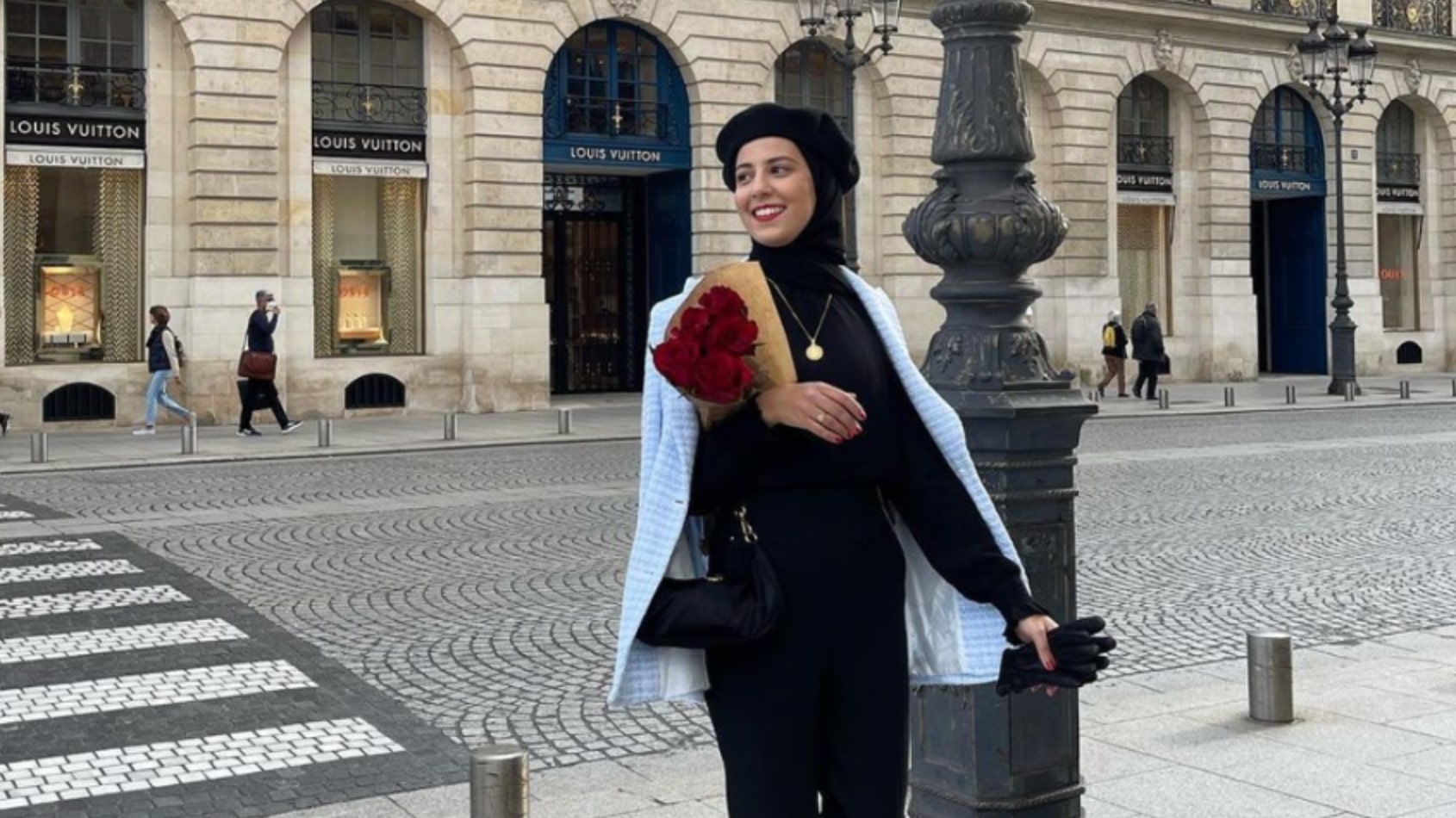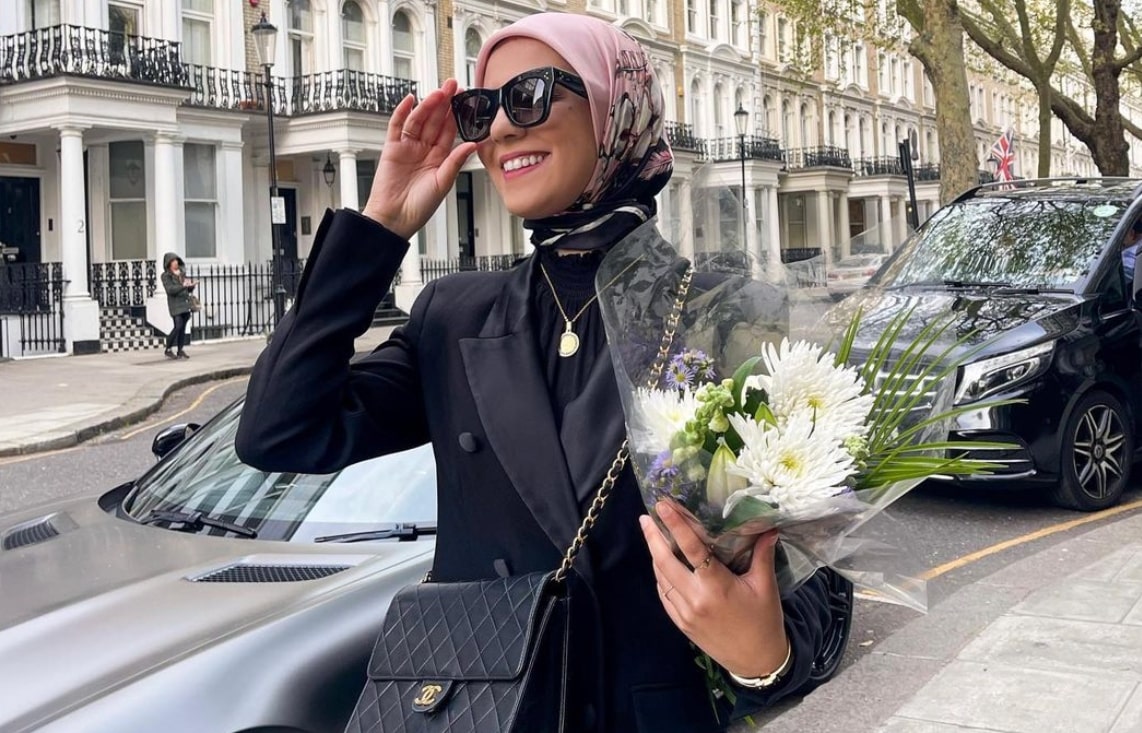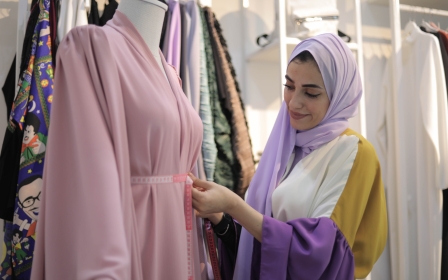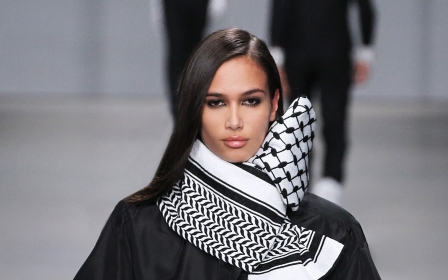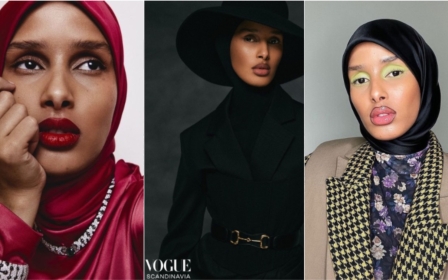'I was raging': British Muslim influencer Salma Masrour on fashion and anti-hijab prejudice
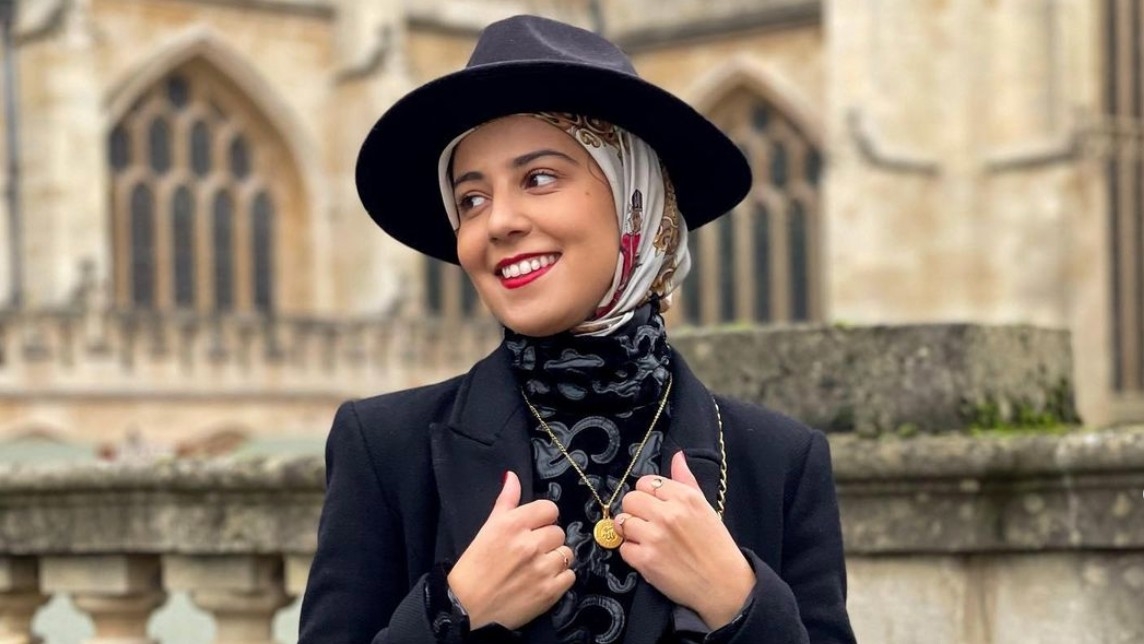
At a Yemeni cafe close to Warren Street station in central London, I meet the modest fashion influencer Salma Masrour.
Months after a high-profile incident of alleged hijab discrimination at a Paris restaurant, it's back to business as usual for the social media star.
Dressed in black workout gear, the influencer has just returned from Dubai and says she doesn’t have a lot of time left before her yoga class.
'We’re not seen for our talents or our work, we’ve become like a diversity tick box. Sometimes at events, I’m the only one in hijab'
- Salma Masrour
“Because of my job, I spend so much time on social media, I really need time away from my phone, even if it’s just for 45 minutes,” the 26-year-old Londoner says.
The day’s monochrome palette is a stark contrast to the vibrant and colourful outfits she usually dresses in.
New MEE newsletter: Jerusalem Dispatch
Sign up to get the latest insights and analysis on Israel-Palestine, alongside Turkey Unpacked and other MEE newsletters
Her preferred look combines sophisticated, tailored elements, with street style, while conforming to Islamic ideals of modesty.
After graduating with a degree in pharmacy, Masrour fell into the world of lifestyle influencing, catering to one of fashion’s most lucrative demographics: Muslim women and those looking for so-called "modest style".
The sector has grown rapidly in recent decades with fashion outlets from H&M to Burberry releasing modest lines and even advertising their collections using hijab-wearing models.
It’s a space where figures like Masrour have been able to establish a name for themselves, advertising “looks" that their followers can either imitate or adapt.
Masrour, who lives in the UK and is of Moroccan descent, has over 180,000 followers on Instagram where she shares photos and videos of her style choices, as well as video blogs on her lifestyle and travel experiences.
“I’ve been doing this for seven years now,” she tells Middle East Eye.
Muslim women and fashion
Masrour’s journey into fashion started at a young age and she began by showing off her clothes to classmates.
“I would go to an Arabic school every weekend as a child, and that was my time to shine,” she laughs.
“I would carefully put together my outfits, and everyone would always ask me where I got things from,” she adds.
According to Masrour, a lot has changed in the fashion industry since she first got involved in lifestyle influencing, most notably the growth in the popularity of people like herself.
"There weren't many of us back then,” she says of the early years.
But more recently, major fashion houses have seen the commercial benefits of catering specifically to the needs of Muslim women.
Many of the world’s 1.8 billion Muslims choose to adopt non-revealing clothing or wear hijabs in accordance with their faith’s emphasis on modest dress.
While western outfits have always been popular, traditionally women have worn them with self-made adaptations in order to comply with their religious beliefs, usually involving layering of clothes.
But now fashion-conscious Muslim women have been recognised as a potential market valued in the tens of billions of dollars, many designers have decided to offer clothes with modesty in mind.
Masrour, who collaborates with major brands herself, says that influencers have played a role in getting big companies to take Muslim women seriously and assign budgets for collections with them in mind.
But despite this progress, the influencer tells MEE that the industry still needs to do a lot more in terms of representation.
“We often see big campaigns and there’s just one woman in a hijab,” she says.
"We’re not seen for our talents or our work, we’ve become like a diversity tick box. Sometimes at events, I’m the only one in hijab."
Paris restaurant incident
The rights of hijab-wearing women are a topic close to her heart and last November she was at the centre of a social media storm after a restaurant in Paris allegedly refused to seat her on account of her headscarf.
In a series of videos that have been viewed more than a million times, Masrour says the popular Gigi restaurant in the French capital told her there was no available seating while her white friend - who does not wear a hijab - was immediately offered a table.
“I checked online and it said there was availability, but the way she looked at me just didn’t feel right,” she explained in a video posted after the alleged incident.
“Ten minutes later, my friend, who is white and blonde, went in to ask for a table, and was immediately told there was space.”
The incident caused outrage online and the restaurant was forced to limit comments on its social media posts due to the backlash.
@salmamasrour Replying to @Isabella I have no words for what happened. #gigiparis #gigirestaurant #paris #france #fyp #hijabi #fypシ゚viral ♬ original sound - Salma Masrour
Even months after the incident, Masrour remains indignant about the episode and says the restaurant's promise to “make changes” came too late and does not go far enough.
“I was fuming," she says about the experience. "
"I was angry. I’m usually calm and it takes a lot to make me angry but I was raging inside.
“I didn’t expect the response to the videos I made. The restaurant’s reviews on Google went from 4.5 to 1.5, and thousands of people called them out in the comments."
'This was just one small incident and made me feel horrible, so I can’t imagine how women in hijab in France feel'
- Salma Masrour, fashion influencer
For Masrour, the incident was an insight into the discrimination women who choose to wear the hijab in France face.
She has since begun legal action against the restaurant.
"This was just one small incident and made me feel horrible, so I can’t imagine how women in hijab in France feel.”
Despite the incident, the social media star’s love for Paris remains unchanged. She says she has visited the French capital five times and that the city has a special place in her heart.
“I love the city and the pastries,” she shrugs.
While she has decided to boycott the restaurant, she still plans on returning to the city.
Tackling discrimination
Publicising her experience in Paris was unpleasant but it was a necessary step to take in order to end the stigma around women who wear hijab, according to Masrour.
She says that she is now even more determined to use her platform to speak out on issues related to the hijab and prejudice against Muslim women.
“If I can prevent one person from being discriminated against, I’m happy," she says.
But while being committed to tackling discrimination head-on is a vital aspect of her work, wanting to empower Muslim women is another.
Masrour wants to do this by continuing to build her following and by establishing relationships with big companies to make modest fashion more visible.
“There is so much work that goes into being an influencer behind the scenes," she says, readying herself to leave for her yoga class.
"People just see the final photos but there’s negotiation with brands, styling, editing, shooting the photos, the admin side of things.
"I love what I do, but it can be draining.”
This article is available in French on Middle East Eye French edition.
Middle East Eye delivers independent and unrivalled coverage and analysis of the Middle East, North Africa and beyond. To learn more about republishing this content and the associated fees, please fill out this form. More about MEE can be found here.


